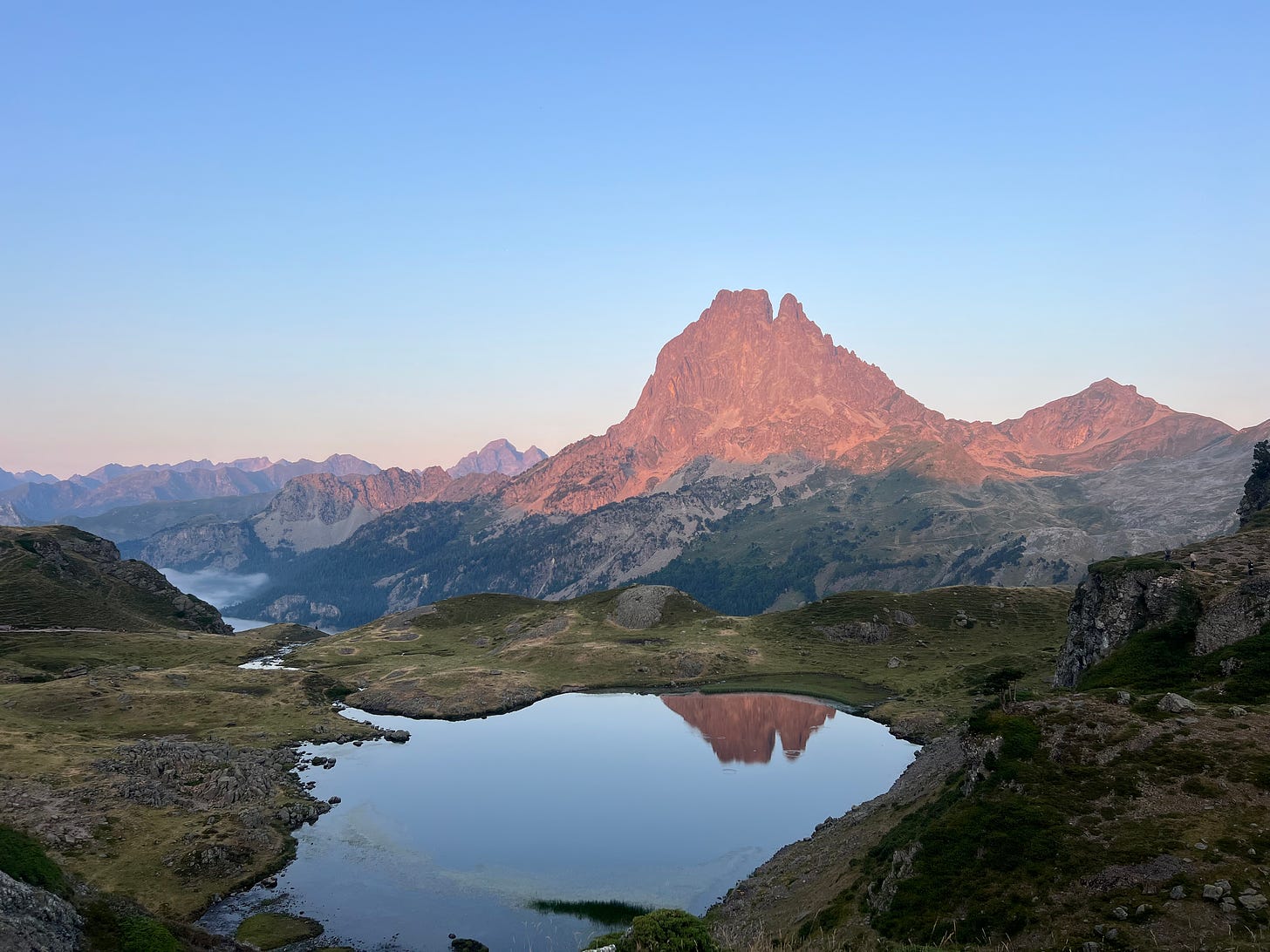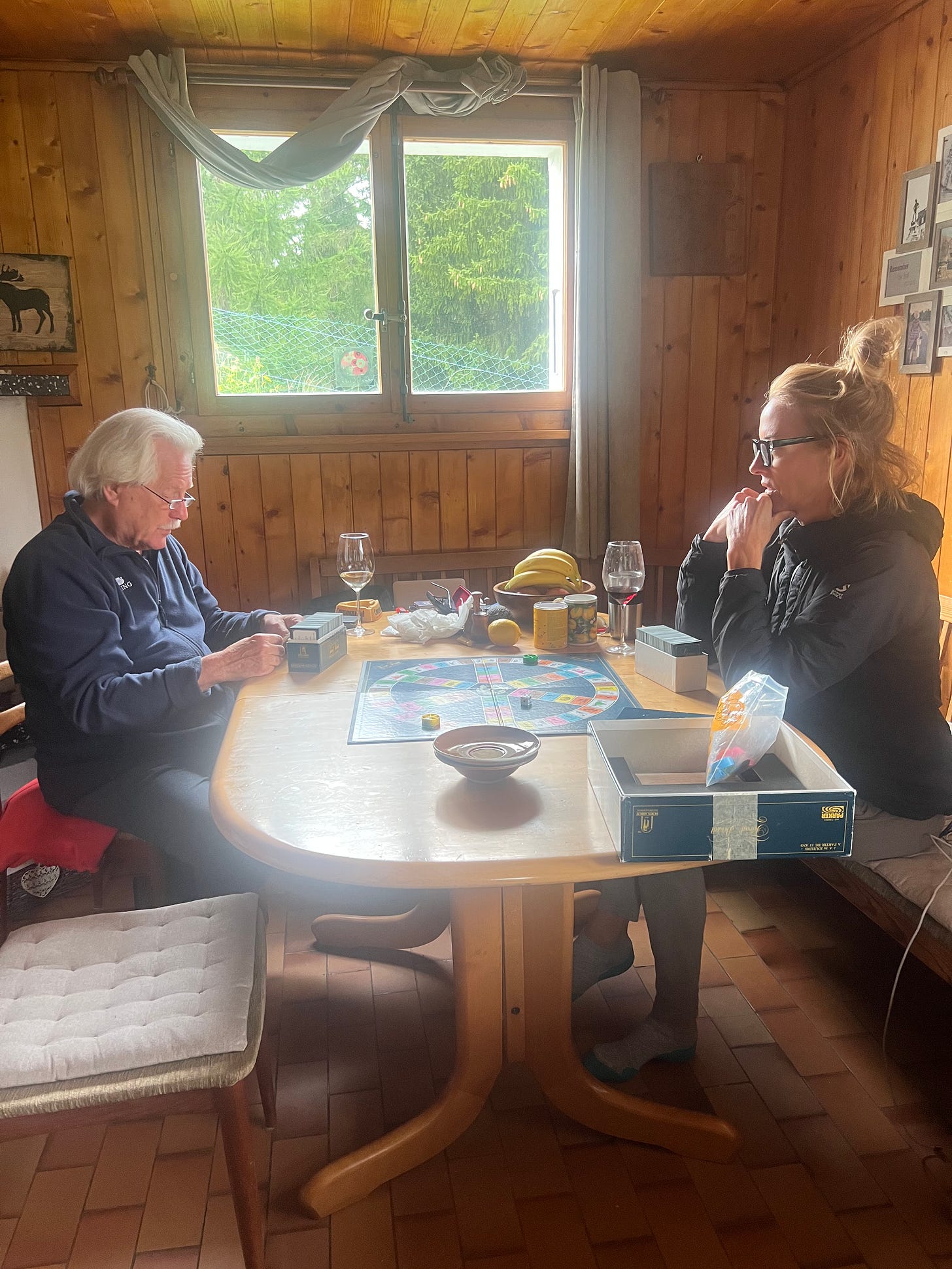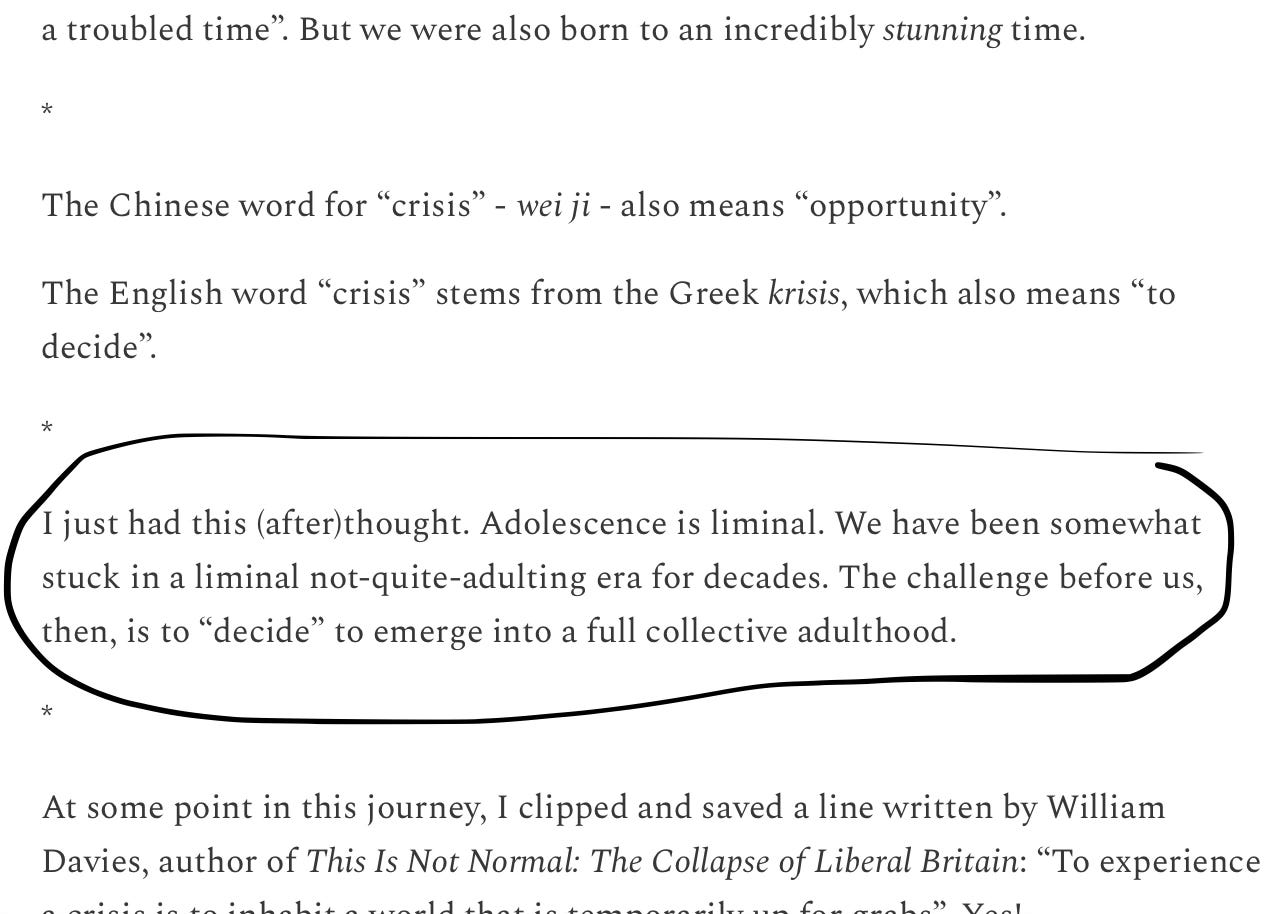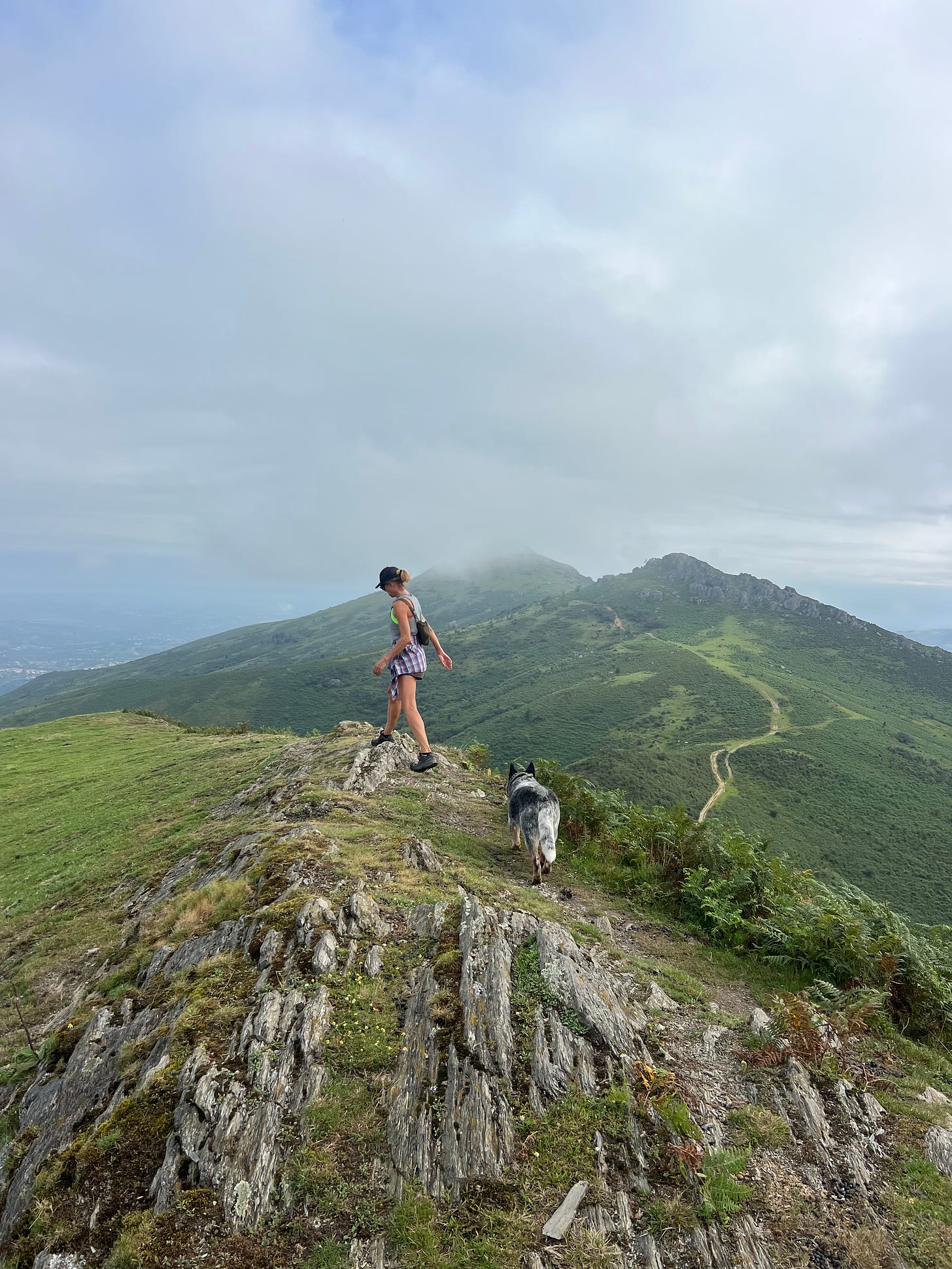Writing notes: Some fun additions to the serialising book project
Because this beast is an agile, alive one and you're all part of it!
I am thoroughly enjoying this book serialisation project we’re doing together. (Missed the whole thing? Get started here.) Wonderfully, it is getting some traction - 3,000 more subscribers have hopped on board, various newspaper editors are following the journey and bits are being quoted in climate activist newsletters.
Importantly, the feedback I get from you in the comments truly has made the writing and research process so much easier and more joyous to navigate. It’s the least lonely, least neurotic book writing exercise I’ve ever engaged in.

💥🚨 Relatedly and as further evidence that traditional book publishing desperately needs a shake-up, I share some news that has unfurled in parallel: After investing much time and $$$ into self-publishing the second Australian edition of This One Wild and Precious Life, distributing it via the Australian company Booktopia (read about how I went about this here), I’ve seemingly lost the whole lot. Booktopia has gone bust, entering into voluntary administration, and has taken all my books and $$$ with them. I’ve not been paid a cent. I can’t retrieve the thousands of books they currently hold in their warehouse. I’m horrified. But philosophical. And doubly grateful for this space with you.
The other boon of the serialisation process: The dynamic format allows me to incorporate your comments, wisdoms and links, as well as additional information I find that backs the discussion we’re having, as we go.
And so today I’m going to share some of the bits and pieces that I’ve been adding back into the first eight chapters already published, and/or have found really useful for understanding the ground we’ve already covered. I’ll do this every couple of months. Let me know if you find it a worthwhile layer!
A Hope thought
I liked this comment from Jade Frederiksen and will add it to a follow-up chapter toward the end of the book where I’ll circle back to hope (and provide a redefinition of it for the future, I think):
“So many humans don’t know how to access sadness anymore. They can’t cry, and we need to cry. It’s fucking sad. The lose of hope is a gateway to sadness I think.. for me, feeling that deeply is what then allowed me to mobilise.”
A Truth thought
Reader (and fellow writer) Sara Foster sent the below, written by Anne Bronte by way of an introduction to her controversial book The Tenant of Wildfell Hall. It speaks to the issue we grappled with in the second chapter (Truth) - the responsibility we have as we sin in and face truth, rather than masking it with hope. I love the last line:
“I wished to tell the truth, for truth always conveys its own moral to those who are able to receive it… When we have to deal with vice and vicious characters, I maintain it is better to depict them as they really are than as they would wish to appear. To represent a bad thing in its least offensive light, is doubtless the most agreeable course for a writer of fiction to pursue; but is it the most honest, or the safest? Is it better to reveal the snares and pitfalls of life to the young and thoughtless traveller, or to cover them with branches and flowers? O Reader! if there were less of this delicate concealment of facts – this whispering ‘Peace, peace,’ when there is no peace, there would be less of sin and misery to the young of both sexes who are left to wring their bitter knowledge from experience.”
A liminal (after) thought
I decided to add this bit below to the Liminal chapter…
Collapse details
A few bits and pieces that I’m adding into the three Collapse chapters:
Electricity comprises only 20% of fossil fuel use. This is something I failed to flag, but it’s key when discussing whether the renewable energy transition can save us. When we’re talking about this transition, it doesn’t apply to the bulk (80%) of fossil fuel use, such as steel manufacturing and large transport.
These posts by
gives a wonderfully in depth rundown of the EROI issue and peak fossil fuel issue that I discuss in the third Collapse instalment:
This is going to have to be spiritual
I really liked this comment from Madeleine Urion (specifically the bit I’ve bolded) and will try to feed it in somewhere. There is more to be explored with this point:
“Recently a Cree elder that my husband and I have come to know described how medicines used for prayer and ceremony are becoming harder to find out on the land. This was gravely sobering to sit with. The discomfort and deep sorrow of sitting with it, of being faced with the reality that my people have played a primary role in their disappearance, has caused me to pray differently and with far greater humility than I ever have before. This practice of grief and lament has changed my behaviour and how I move in the world: the life I have discovered in that place of lament makes me want to bless and to not destroy, even in painful moments of interaction with others or in moments of beholding the weight of all that is happening in the world and to the earth and my relative helplessness within it all.”
The world starts to freak out about fertility collapse
Within days of publishing the Collapse and Death chapters, a rash of reports landed in my inbox that spoke of a mounting fertility panic. Funny how these things go:
In the UK, experts are now warning: The falling birthrate threatens a disaster so costly no politician dares think about it. I’ve added this snippet to the Collapse chapter.
Per my point in the Death chapter that once fertility rates drop below replacement they never come back up, The Atlantic ran this meaty feature on the issue, raising a relevant point:
South Korea has spent more than $200 billion over the past 16 years on policies meant to boost fertility, including monthly stipends for parents, expanded parental leave, and subsidized prenatal care—yet its total fertility rate fell by 25 percent in that time. France spends a higher percentage of its GDP on family than any other OECD member country, but last year saw its lowest number of births since World War II. Even the Nordic countries, with their long-established welfare states, child-care guarantees, and policies of extended parental leave, are experiencing sharp fertility declines.
It goes on:
This suggests the existence of another, under-discussed reason people aren’t having kids—one that, I have come to believe, has little to do with policy and everything to do with a deep but unquantifiable human need.
That need is for meaning. In trying to solve the fertility puzzle, thinkers have cited people’s concerns over finances, climate change, political instability, or even potential war. But in listening closely to people’s stories, I’ve detected a broader thread of uncertainty—about the value of life and a reason for being.
Then J.D. Vance entered the picture and we got an idea of his take on things. He has lamented that the country was being run by “a bunch of childless cat ladies” and has said he wanted “to take aim at the left, specifically the childless left … because I think the rejection of the American family is perhaps the most pernicious and most evil thing that the left has done in this country.”
There is a lot of talk that the Project 25 manifesto, which Vance is directly involved in, will be using period tracker apps to monitor women of fertile age.
A reader here pointed out how Australia’s public broadcaster the ABC was covering the issue, referring to it as a “baby recession” in several articles. The issue keeps being reported and interpreted in economic terms…just a bit Handmaid’s Tales, no?
And here’s an update on the microplastics in sperm point - another study concretising the point further:
“At the beginning, I doubted whether microplastics could penetrate the reproductive system,” said Prof Xiaozhong Yu, at the University of New Mexico in the US. “When I first received the results for dogs I was surprised. I was even more surprised when I received the results for humans.”
What is left if we lose it all?
I point to this question a few times (in the Collapse and Death chapters) and one of you (
?) referred me to a post written by that explores the same idea - when “the old normal” dies, what will be left? And will it be necessarily bad, or the opposite? makes a whole bunch of great points, which I’ve dot-pointed:I wouldn’t be so fixated on never seeming ‘awkward’ or ‘creepy’; the moment disaster happened, I would just get over myself and knock on my neighbors’ doors.
If the world ended, I’d stop caring about my appearance, but I’d still long for a mode of self-expression like fashion currently provides.
I wouldn’t think of my writing “career,” but I’d still want to be heard.
It’s worthwhile to contemplate the people we will become after capitalism. The rhythms of our lives will change, as will our priorities…I often find myself looking forward to the person I could become in this new reality. And those thoughts often motivate me to make small changes in who I am and what I prioritize right now.
In a less consumeristic world, I know that I’d find my purpose in quietly sharing books with other introverted types, asking my local elders for advice, and clinging to the handful of people who make me feel safe.
And this clanger:
Of course, I could be living that exact way right now. I don’t need anybody else to rescue me — I can choose immediately to become less superficial, to move at a slower pace, and to stop trying to prove that I am a worthy person by the standards of this terrible economic system… I can liberate myself from my bullshit job and make my expertise more widely accessible to the people who genuinely need it most. Once again, preparing for a future world offers me lessons about how to live better in this one. When I consider the person I could be if I stopped following the rules of capitalism, all of a sudden I’m no longer afraid.
Oh, and this one:
The world after capitalism will not be a warzone. It will be a long, vulnerable night on the porch with your friends.
Devon also makes this wonderful point: Those of us living in the privileged world (“the imperial core”) are so ill-equipped to handle discomfort and loss that we tend to …collapse in the face of collapse. We figure we will just have to die, and we revel in the idea of complete wipe-out. Devon argues we do this to avoid fighting, doing what we can, asking scary questions, and being in the complexity and hardship:
Death is an answer that ends all questions — about what a better life would look like, how to make amends, or how our circumstances might ever change.
The fantasy of the apocalypse serves a similar purpose. Destruction wipes the slate clean; in the absence of memory, we owe nothing to anyone. It is better for my building to collapse on top of me than for me to learn to share my property with others. If I die in the rubble of the United States, I don’t have to contend with the fact it was built in my name. If I don’t survive to see the new world, I never have to change. It really goes to show you just how helpless people have been conditioned to see themselves as being.”
And just for an additional layer of complexity…
Many of you would have heard of the shutting down of the AMOC (the Atlantic Meridional Overturning Circulation) due to climate change. AMOC is a gigantic, weather-defining current system that acts like a heat pump taking water from the tropics to the north, warming Europe. The most recent update on the AMOC’s weakening suggests it will break in 2057…which will result in a drop of 35C in much of Europe (READ THAT AGAIN!), clobbering food systems and wiping out communities in the tropics. Yet another issue our over-burdened society is failing to acknowledge.
Also,
just interviewed the Australian ecologist Corey Bradshaw about fertility collapse and extinction probability. It throws up some frightening points that build on what I covered…but with extra spice. Any one else catch it? Shall I have him on Wild?
Finally,
You might want to catch the Collapse Series on Wild I’ve been running while I’ve had a holiday. Here are two of them, which provide great backgrounders:
Big love to you all,
Sarah xx







Yay I was so excited to see this email on a random Sunday night, it is such a privilege to watch the book evolve. I was just thinking about the point that Devon makes that you mention: Those of us living in the privileged world are ill equipped to handle discomfort. I totally agree but I also wonder if we are equally ill-equipped to handle too much comfort as well. I like to imagine in the face of collapse that us humans don't roll over and give up but instead we embrace the changes and that the discomfort (depending on the level of course) is actually the thing that gives us that sense of purpose and meaning that we are all so desperately craving. I guess only time will tell. Thanks for this bonus email Sarah x
https://www.huffpost.com/entry/facing-extinction-humans-animals-plants-species_n_5d2ddc04e4b0a873f6420bd3
Amazing this beautiful essay was written 5 years ago. Corey is referenced here too. As is Joanna Macey. So much more fodder here for you Sarah. But alas - we’re far beyond needing any more ‘proof’ of our un-stoppable spiral towards extinction.
This is the first time I’ve commented here throughout your serialisation process Sarah (although as you know - I’ve weighed-in on many discussions prior to this venture).
But yeah, I’ve just been quietly watching and waiting from the sidelines this time. Every time I’ve attempted to contribute something, I’ve just felt mute, and then retreated again.
I feel our collapsing world has often rendered me speechless. I often feel beyond (or perhaps lost for) words.
For me personally, I need to start really crying (even more). I need to ‘feel into’ rather than intellectualise this. I found myself crying in the first episode of “We are the Great Turning”. Because there is still SO much beauty in our world, and in relationships, and I love my life - this incredible miracle of human experience/existence.
I feel so blessed to have wondered and wandered through so many beautiful places during my 45-years on this particular planet.
I have met so many wonderful humans and cultivated so many incredible friendships in my life travels.
I now live each day like it might be my last. I pause longer when I feel welcomed sunshine on my skin. I sit on the grass, and I observe the comings-and-goings of many other species around me…some so tiny I have to crouch right down to watch them.
None of us ever know when our time here is up. We never have. So right now, I will roll back over and cuddle my beautiful 6yo sleeping daughter who still crawls into my bed at some stage every night. She breathes deeply and innocently. And if/when I wake to see the sun_rise again…I shall live and love with everything I’ve got ❤️ xx